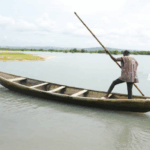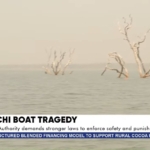
The Public Utilities Regulatory Commission (PURC), Ghana’s economic regulator for utility services, has undertaken a comprehensive comparative study on the nation’s electricity tariffs.
This analysis, guided by the PURC Act 1997 (Act 538), positions Ghana’s electricity pricing within the broader scope of the African continent, offering evidence-based insights for key stakeholders and the PURC itself.
The study utilised cross-sectional electricity tariff data from selected African countries as of March 2025. By examining regional and national tariff structures, pricing mechanisms, and influencing factors, the report aims to inform regulatory policy, promote transparency, and support efforts toward achieving cost-reflective and sustainable electricity pricing.
Ghana’s Tariff Framework
Ghana applies a hybrid tariff-setting framework. The PURC determines tariffs based on the actual costs of generation, transmission, and distribution, which ensures financial sustainability for utilities (like ECG, NEDCo, and VRA) while attempting to minimise undue consumer burdens.
This cost-reflective framework places Ghana among the more reform-oriented countries on the continent, similar to Kenya, Uganda, and South Africa. This contrasts sharply with systems in countries like Ethiopia and Sudan, which maintain highly subsidised tariffs, leading to price distortions and long-term investment unsustainability.
In terms of structure, Ghana, like most of the African continent, uses block tariff structures for residential consumers. This system charges different rates based on consumption, with lower “lifeline blocks” for basic use to promote equity and affordability for low-income households, while higher rates ensure cost recovery from high-use customers.
Ghana’s Tariffs Compared to the rest of the African Continent
When situated in the continental context, Ghana’s electricity tariffs sit near the African median, reflecting its balanced regulatory approach.
Central Africa
Central African electricity tariffs are among the highest and most volatile due to low economies of scale, infrastructural challenges, and instability. In comparison, Ghana’s tariffs are considerably lower, and the country benefits from much better electricity access and service reliability, underpinned by regulatory consistency.
Southern Africa
This region includes mature, largely deregulated markets (South Africa, Namibia) with some of the highest electricity tariffs for industrial users, as they incorporate environmental levies and high infrastructure expansion costs. Ghana’s electricity tariffs are lower than in South Africa and Namibia, but share a similar structural emphasis on cost recovery and financial sustainability over blanket subsidies.
West Africa
The study found that Ghana’s electricity tariffs are moderate within the West African subregion. They are, however, higher compared to those in subsidised countries such as Nigeria but lower than in smaller systems with high operational inefficiencies, such as Liberia and Sierra Leone. Ghana’s strong regulatory structure contributes to greater tariff stability and cost recovery compared to its neighbours.
East Africa
East Africa generally maintains lower average electricity tariffs due to its heavy reliance on hydropower and external funding. Compared to the East African region, Ghana’s tariffs seem relatively higher, mainly because Ghana’s energy mix includes a significant thermal generation component, which is exposed to foreign exchange fluctuations in fuel procurement.
North Africa
Electricity tariffs in North Africa (Egypt, Algeria, Morocco) are generally the lowest on the continent due to large-scale government subsidies and reliance on low-cost gas and oil.
Relative to these economies, Ghana’s tariffs are significantly higher. However, the North African model is considered financially unsustainable, as tariffs often fail to reflect the true cost of supply.
Sector Structures and Regulatory Models
Electricity sector governance across Africa is characterised by significant diversity. While many countries are moving away from traditional vertically integrated utilities towards structural separation—unbundling generation, transmission, and distribution—to enhance efficiency and attract private sector investment, no single uniform approach exists.
Countries such as Ghana, Nigeria, and South Africa exhibit higher levels of structural separation and strong regulatory involvement, with independent regulatory authorities playing a central role in price determination. This shift reflects a move toward greater transparency and professional oversight.
Tariff-setting methodologies also vary. Most African nations use cost-based approaches to ensure utilities recover efficient costs and earn a fair return.
- Cost-Plus/Rate-of-Return: Used in countries like Côte d’Ivoire, The Gambia, and Mali, allowing utilities to recover costs with an approved margin.
- Price-Cap Frameworks: Adopted by Cape Verde, Niger, Senegal, and Kenya, sets upper limits on tariff adjustments to promote efficiency.
- Revenue-Cap Model: Implemented by counties including Burkina Faso, Togo, and Tanzania, focuses on total allowable revenues rather than price per unit.
- Hybrid Approaches: Employed by advanced markets, including Ghana, Nigeria, and South Africa, combine elements of cost-of-service and incentive-based regulation to balance affordability and financial sustainability.
Notably, regulators in countries like Ghana, Mali, Niger, Morocco, Egypt, and South Africa explicitly calculate the Weighted Average Cost of Capital (WACC) to guide investment remuneration, aligning tariff structures with capital market conditions.
Conclusion
In essence, Ghana’s regulatory commitment to a cost-based framework, coupled with its targeted lifeline subsidy for the poor, successfully positions it as a balanced model for electricity pricing in Africa.
Ghana’s residential electricity tariffs are higher than in heavily subsidised economies (e.g., Egypt, Ethiopia and Sudan) but lower than in purely market-based systems (e.g., Namibia and South Africa).
By aligning commercial and industrial electricity tariffs with the continental average, Ghana maintains competitiveness for businesses while ensuring the long-term viability of its utility sector.
The PURC’s mechanism for periodic tariff adjustments is crucial for reflecting currency fluctuations, fuel prices, and efficiency targets—all essential for maintaining sector stability.
- President Commissions 36.5 Million Dollars Hospital In The Tain District
- You Will Not Go Free For Killing An Hard Working MP – Akufo-Addo To MP’s Killer
- I Will Lead You To Victory – Ato Forson Assures NDC Supporters
Visit Our Social Media for More




